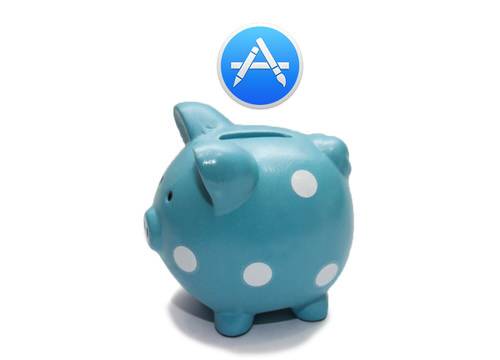
European Apple users got a holiday bonus recently: Apple now offers a new two-week return policy for iTunes, App Store and iBooks customers in the U.K., Germany, Italy, France and other countries in the European Union.
Apple’s previous policy restricted refunds to a narrow set of circumstances where the user might claim they never got the app in question—before “delivery of the product has started.” Apple support reps could make exceptions when glitches or busy servers made downloading impossible, but people had to contact them first.
Now residents in many European countries won’t have to deal with that hassle. But their win could be a thorny issue for app developers.
European Users May Cheer, But Not All App Makers Will

The official change in policy likely stems from an E.U. mandate last June that requires retailers to provide a 14-day right of cancellation or return period. Likewise, the new terms expand the review period to 14 days, within which users can get a refund, no questions asked.
Right of cancellation: If you choose to cancel your order, you may do so within 14 days from when you received your receipt without giving any reason, except iTunes Gifts which cannot be refunded once you have redeemed the code.
The refund policy does not apply to iTunes gift cards. In all other cases, however, there’s little to stop people from trying out apps and then getting their money back. (They can request it online via the “Report a Problem” tool, or by writing to the company).
See also: Apple Services iOS Developers With New App Store Analytics
That may be a welcome change for users, but it can complicate matters for app makers. Thanks to the policy, people may try out paid apps and choose to keep ones they wouldn’t have downloaded before. In the best-case scenario, it could wind up lifting its already exploding digital economy even further. The iTunes store brought in $4.6 billion in revenue last quarter, including 85 billion App Store downloads.
Sounds great. But developers who make high-value apps—like games—could wind up being collateral damage if users get in the habit of grabbing them for a specific purpose, then demanding refunds.
For instance, you can keep your visiting brother out of your hair with “Grand Theft Auto: San Andreas,” and then ask for the $6.99 back after he leaves in a week. No questions asked. It would be the equivalent of buying a DVD, watching the movie, and then returning it—something most retail stores don’t allow.
It’s already hard enough to get users to pay for apps up front. The refund policy will likely push more app developers to offer free games with in-app purchases, such as new levels or abilities that can only be unlocked if the player pays up.
On the other hand, a more liberal refund policy could prompt users to download paid apps they might otherwise have passed up. If those users end up keeping the app, that’s money the developer might not otherwise have seen.
A Test Case
In the U.S., brick-and-mortar retailers tend to offer a similar refund policy that can run anywhere from one week to a couple of months, depending on the purchase and the location. But there’s no universally applied law covering all retailers, both physical and digital—and in most cases, playable media like movies and video games can only be returned unopened.
Apple’s new terms apply to E.U. countries only. The old, annoying restrictions on refunds live on for Mac and iOS users in the U.S., Canada and other non-E.U. countries.
Photo collaged by Adriana Lee, based on image by OTA Photos

















